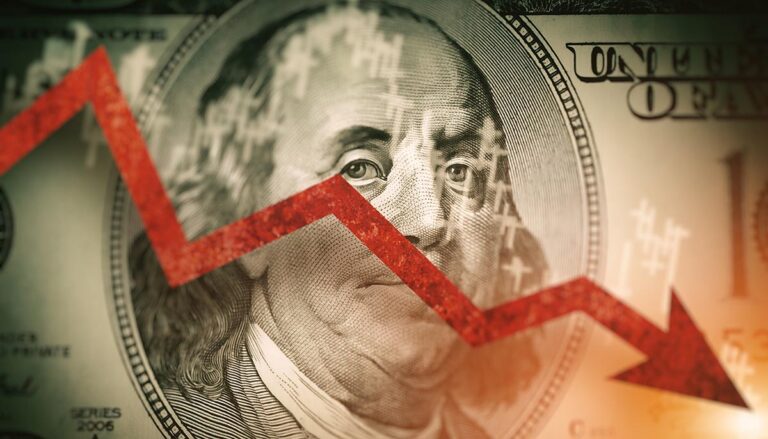The United States met the standard metric for a recession this week, which is defined as a fall in GDP in two successive quarters. After the economy shrank a second time, the Fed raised interest rates, resulting in a major plunge in the housing market.
US enters recession with second straight quarter of negative growth
The U.S. Bureau of Economic Analysis (BEA) report was released on Thursday, showing the nation’s domestic gross product (GDP) had an annualized rate of 0.9%, worse than the predicted 0.5%.
Economists widely define a recession as two consecutive quarters of negative growth, the Daily Wire reported.
The National Bureau of Economic Research defines a recession as “a significant decline in economic activity that is spread across the economy and that lasts more than a few months,” the New York Post reported.
While not all the experts can’t agree, with some saying many factors go into the calculation, most pundits are unanimous in declaring that the US is certainly teetering on recession.
White House pushes back against recession claims
There’s one group of experts that still insists that the country hasn’t hit a recession yet. The White House is pushing back against calls that the current economy is in a recession, NPR reported.
Despite this latest GDP report, President Joe Biden said on Thursday that the US is “on the right path,” WYFF4 reported.
“Coming off of last year’s historic economic growth — and regaining all the private sector jobs lost during the pandemic crisis — it’s no surprise that the economy is slowing down as the Federal Reserve acts to bring down inflation,” President Biden said in a statement. “But even as we face historic global challenges, we are on the right path, and we will come through this transition stronger and more secure.”
Federal Reserve hikes interest rate another 0.75 points, denies recession
On Wednesday, a day prior to the GDP report, the Federal Reserve took another step to hedge inflation with another 0.75 percent – or 75 basis points.
The move marks the second straight month that the Fed raised interest rates by three-quarters of a percentage point, and the previous hike was the first of its kind since 1994.
Fed Chair Jerome Powell rejected the notion that the US was already in a recession, but admitted the Fed’s actions would likely have a dampening effort on growth and create “softening” in the labor market, the New York Post reported.
US housing sales plummeting, prices falling
Economists are expecting a major plunge in housing prices as the market corrects amid “cratering” demand. Buyers are now cash-strapped and mortgage rates are rising.
While single-family home listings have surged over 40% in the last four months, sales have plummeted due to sky-high prices and even higher interest rates, the New York Post reported.
Commerce Department data released on Tuesday showed new single-family home sales dropped by 8.1% in June, the lowest level of sale since 2020, Reuters reported.
The 10 housing markets where prices are expected to plunge the most
Experts analyzed current home sales trends and identified 10 markets where home prices are expected to experience the biggest drop in value as sales slow, interest rate rises and inflation creates market corrections, the New York Post reported.
- Riverside, California
- Boise, Idaho
- Cape Coral, Florida
- North Port, Florida
- Las Vegas, Nevada
- Sacramento, California
- Bakersfield, California
- Phoenix Arizona
- Tampa, Florida
- Tucson, Arizona.





